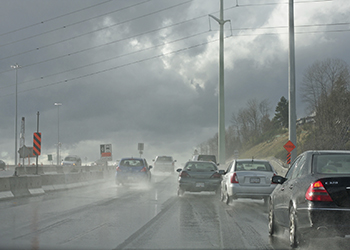
The issue
The Border Air Quality Study is a cluster of research projects supporting the development of an international strategy for the Georgia Basin-Puget Sound airshed. Involving study populations of 80,000 mothers and children and 500,000 adults, the project investigated whether exposure to a range of air pollutants is associated with various adverse health outcomes.
Over 40 researchers from the University of British Columbia, the University of Washington and the University of Victoria are involved in the study which is funded by Health Canada and the BC Centre for Disease Control.
Data sources linked
- Medical Services Plan (BC Ministry of Health)
- Hospital Separations (BC Ministry of Health)
- Perinatal Services BC
- Vital Statistics Births and Deaths (BC Ministry of Health)
- Census data
- Ministry of Environment data
- Researcher-collected data
- Data from Metro Vancouver municipalities
What did we learn?
- After controlling for other factors, in Metro Vancouver, children born to mothers living less than 50 metres from a provincial highway were:
- 21% more likely to be born pre-term and/or have low birthweight
- 6% more likely to develop bronchiolitis
- In Metro Vancouver, an estimated 13% of new childhood asthma cases and 7% of middle ear infections are caused by traffic pollution.
- Wood burning in urban areas remains a major source of air pollution linked to negative health outcomes such as those above.
- There is a direct relationship between air pollution and cardiovascular disease in adults. The closer you live to a highway the higher your risk of dying from coronary heart disease.
“Cardiovascular disease is one of the main causes of death in Canada. In the same way that stopping smoking reduces your risk of getting lung cancer, moving away from traffic pollution lowers your risk of getting cardiovascular disease.”
Professor Michael Brauer, School of Population and Public Health
University of British Columbia
Policy implications
- The team worked with the BC Ministry of Environment to develop guidelines for new developments including recommendations for separation distances for traffic corridors.
- A number of programs were developed to limit wood burning in Metro Vancouver. Tools developed during this study are being used in the Woodstove Exchange Study in BC’s Bulkley Valley Lakes District. Smoke from woodstoves is a major pollutant is this region and the provincial government is supporting a pilot “change out” program to encourage the replacement of old stoves with certified cleaner burning models.
- The study has been cited at local, national and international levels by Health Canada and the World Health Organization.
